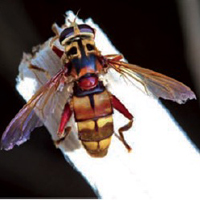Ecological assessment of the lowland relit forest “Bosco delle Sorti della Partecipanza” in Trino (North-Western Italy), applying Diptera Syrphidae as bioindicators

Accepted: 19 April 2021
HTML: 18
All claims expressed in this article are solely those of the authors and do not necessarily represent those of their affiliated organizations, or those of the publisher, the editors and the reviewers. Any product that may be evaluated in this article or claim that may be made by its manufacturer is not guaranteed or endorsed by the publisher.
Authors
The survey has been realized in the lowland relict forest Bosco delle Sorti della Partecipanza, a site situated in Trino (Piedmont, North-Western Italy), to assess the ecological conservation level of forest habitats using the Syrph the Net methodology. 67 species were recorded, using three Malaise traps, seven Emergence traps and several Net transect in the year 2020. Among these species, 6 are reported for the first time in Piedmont region, 19 are considered decreasing at European level and 2 are threatened in Europe. Forest habitats under scrutiny in the study area are oak-hornbeam mesophilic woodland and alluvial alder lowland. The data analysis allowed to compare observed with expected syrphids for each habitat. At the ecosystem level, the ecological integrity of the forest is moderately negative but the alluvial alder forest macrohabitat can be considered good and overall saproxylic and saprophagous species are particularly well-preserved. The presence of a high number of rare or decreasing species makes Trino wood an important source of biodiversity in Po Plain.
How to Cite

This work is licensed under a Creative Commons Attribution-NonCommercial 4.0 International License.
PAGEPress has chosen to apply the Creative Commons Attribution NonCommercial 4.0 International License (CC BY-NC 4.0) to all manuscripts to be published.

 https://doi.org/10.4081/jear.2021.9617
https://doi.org/10.4081/jear.2021.9617



